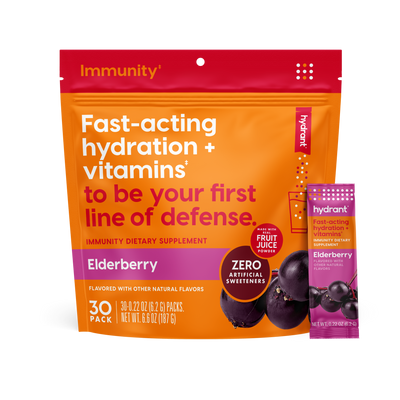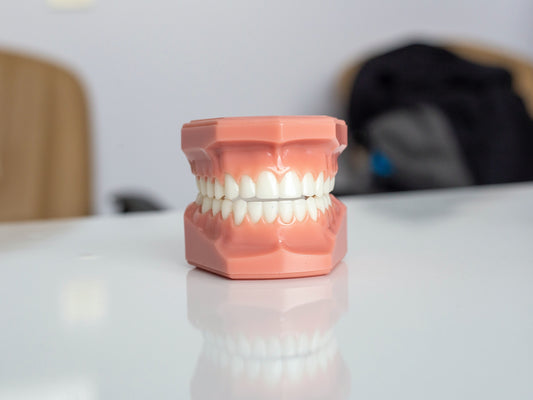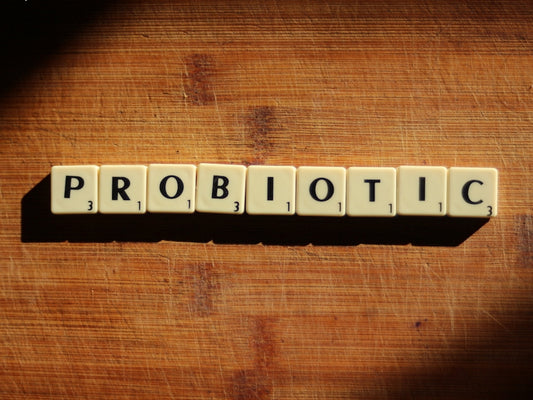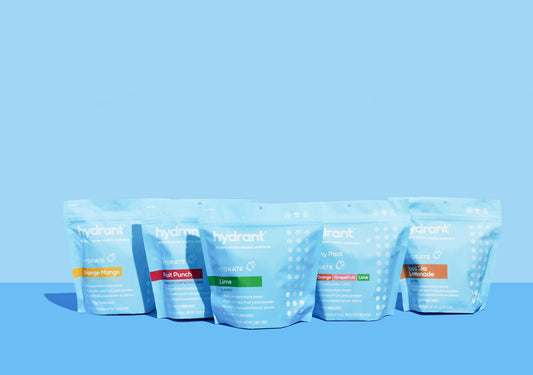Let’s take a little time to talk about Zinc (Zn). Sure, you’ve probably heard of it—it’s an element on the periodic table. But what does it really mean for your immune system? Let’s break it down:
Well, first thing’s first. It’s a chemical element. Zinc can offer immune support and general well-being when added into a daily routine and/or diet. It boasts some anti-inflammatory properties, which play a crucial role in creating immune cells. Just based on these properties alone, it makes for a great addition to any immune-supporting routine.
In this article, we dive deep into the history of Zinc and its important role in providing ongoing immune support. To start, let’s focus on understanding the appropriate dosage amounts and benefits of Zinc before adding it into your routine.
You can take Zinc as a dietary supplement or in water-soluble form. But like all vitamins and minerals, it’s important to understand the full picture. Taking Zinc alone will not diagnose, treat, or cure any illness. So if you’re not feeling well, be sure to consult your primary care provider first.
Think of Zinc like the gatekeeper of your immune system
Zinc homeostasis is the proper term for when your body reaches the “sweetspot” of Zinc, to foster immune support.[3]
When this happens, it means two things for immunity:
- Balanced immune cell numbers and functions.[3]
- Balance between tolerance and defense mechanisms.[3]
Essentially, the two zinc homeostasis results above reflect how proper zinc intake is essential for a functioning immune system—but what happens when the balance is thrown off?
Earlier, we took a look at what an ideal zinc dose looks like, but we didn’t detail the effects of zinc excess or zinc deficiency. Basically, both zinc excess and deficiency result in a malfunctioning of the adaptive and innate immune system.[3] Think of these systems as two wheels working in tandem. Our adaptive immune system helps protect us from death by infection[4], and the innate immune system acts as the first wall of defense.[5] Our innate immune systems were acquired before our adaptive immune system and have evolved to help protect us from potential illness-causing agents in our environment, including viruses, bacteria, fungi, and parasites.[5]
How to Add Zinc to your Routine
There are several ways to add Zinc to your daily routine.
Zinc comes in two forms. Zinc citrate exists as a Zinc salt of citric acid, while Zinc gluconate contains the Zinc salt variety of gluconic acid.[17-18] Both of these Zinc forms are available to take as dietary supplements. In all of our products at Hydrant, we use Zinc gluconate in our ingredients, because it’s easily absorbed by the body. For our Immunity line, we upped the dosage to help provide additional immune support. Both Zinc citrate and Zinc gluconate are equally absorbed by the body and can also be used to help with Zinc deficiencies.[3]

Okay, so Zinc sounds like an easy addition to my wellness routine. But how much should I actually be taking?
Men require around 11mg of Zinc per day, while the daily recommended dose for women is around 8mg.[1] In some cases, people with Zinc deficiencies can increase their daily intake over the average 8-11mg per day mark.
Just like anything in your diet, it’s important that you don’t overdo it. Generally, it's recommended that people stay away from dosages of around 40mg per day. That dosage range can produce negative effects in users that include anemia and weakening of the bones.[2] All in all, Zinc dosages should not exceed 25mg per day.[2] While Zinc deficiency is a condition that always needs to be addressed, it’s fairly rare in countries such as the United States as Americans tend to source enough of the element through their diet.
When we think about Zinc, it’s helpful to imagine this chemical element acting as a gatekeeper for our immune system. For Zinc to perform its job as a gatekeeper of immune function, the proper balance of this chemical element has to be achieved within the body.
Zinc Excess and Deficiency: A Closer Look Into the Way Things Work
Scientifically speaking, too much Zinc can result in:[3]
- Suppression of T & B cell function
- Overload of regulatory T cells
- Activation of macrophages
Let’s back up a bit. T cells attack virus-infected cells, cancer cells, and foreign cells, while B cells produce antibodies used to help our bodies fight infection[6]. Regulatory T cells have some downsides that include suppressing sterilizing immunity and limiting anti-tumor immunity, so it’s easy to see how an overload of this cell can be harmful.[7] An imbalance of macrophage phenotypes may compromise healing and act as a root cause of inflammatory disease[8]

A person suffering from zinc deficiency might experience things like:[3]
- Lower levels of regulatory T cells
- Overproduction of proinflammatory cytokines and reactive mediators
- Thymic atrophy
- T helper type 1 and T helper type 2 cell disbalance
- Less naïve B cells
- More T helper 17 cells
A Closer Look at the Elements (Explained):
Just as too many regulatory T cells can be bad, too few can limit our ability to fight cancer cells, foreign cells, and virus-infected cells.[6] Chemically speaking, an inflammatory response can go awry if proinflammatory cytokines are overproduced. Immunoregulatory molecules like antiinflammatory cytokines work alongside proinflammatory cytokines to create a balance that promotes immune function.[10]
Our thymus is vital for healthy T cell development and is very sensitive to atrophy.[10] Thymic atrophy refers to a loss of cells along with a disruption to the Thymus’ architecture[10]. If thymic atrophy occurs, TCR diversity may be limited, along with the possibility of lower naïve T cell output [10].
T helper type 1 and T helper type 2 imbalance can lead to disease as both pathways can end up downregulating each other.[11] Naïve B cells are essentially baby B cells that haven’t been activated by an antigen.[12] Once antigens activate b cells, they turn into either plasma B cells or memory B cells.[12] Plasma B cells mass-produce antibodies to match the active invader, while memory B cells supply us with longer-lasting immunity to various invaders.
T helper 17 cells mediate host defensive mechanisms related to several infections such as extracellular bacteria infections[13].
Relevant Zinc Findings
Would you be shocked to hear that all immune cells are directly affected by Zinc signals?[14] Well, you’re not the only one. Every cell needs Zinc to multiply, and most prominent pathologic changes are found during Zinc deficiency. This tells scientists that Zinc is the one of the main regulators of cellular function and signal transduction.
Pretty neat, right?

Acute lower respiratory illnesses are unfortunately the leading cause of death for children worldwide.[15] A randomized study served to indicate that the Zinc administration accelerated the recovery of Thai children with Acute lower respiratory illnesses, which cut down the time they spent in the hospital. reducing their hospital stay.[16] But patients with lower respiratory illnesses aren’t the only people that can benefit from Zinc supplementation.
HIV is well-known for aggressively attacking people's immune systems. However, studies show that long-term Zinc supplements can delay immune system failure in HIV patients—not to mention decreasing some unpleasant side effects.
Also, take a look at Zinc and the common cold. Seven trials reflected that cold durations were shortened up to 33% for subjects ingesting proper Zinc levels. However, like all medical findings, we’re still waiting on more to support this research, and Zinc should not be considered as the sole treatment for illnesses.
Zinc contains both anti-inflammatory and antioxidant properties that can aid in overall wellbeing & health. When inflammation and infections get out of control in the body, the results can be damaging. Our cells attract Zinc as a protein to help fight infections. Not only does Zinc support immune health, but it’s essential for cell growth and division, immune function, enzyme reactions, and DNA synthesis.
How to Add Zinc to your Routine
There are several ways to add Zinc to your daily routine.
Zinc comes in two forms. Zinc citrate exists as a Zinc salt of citric acid, while Zinc gluconate contains the Zinc salt variety of gluconic acid.[17-18] Both of these Zinc forms are available to take as dietary supplements. In all of our products at Hydrant, we use Zinc gluconate in our ingredients, because it’s easily absorbed by the body. For our Immunity line, we upped the dosage to help provide additional immune support. Both Zinc citrate and Zinc gluconate are equally absorbed by the body and are also used to treat Zinc deficiencies.[3]
Zinc & Hydration
All Hydrant products currently contain Zinc gluconate to help with the hydration process. When we created our Immunity product line, we felt it was important to increase the dosage from our original hydration mixes and provide strong immune support. Each serving of our Immunity products has 10mg of Zinc or 90% of the recommended Daily Value. We’re here to help you stay hydrated and feel your best—no matter the season.
Zinc in Summary
We're happy to have unpacked the benefits that Zinc provides. Fascinating and essential, Zinc’s unique properties make it a great addition to our Immunity line to support overall immune health. Remember that Zinc alone is not intended to cure, prevent, or treat any disease. If you’re not feeling well, check with your primary care provider.



































